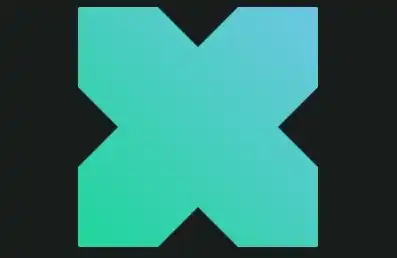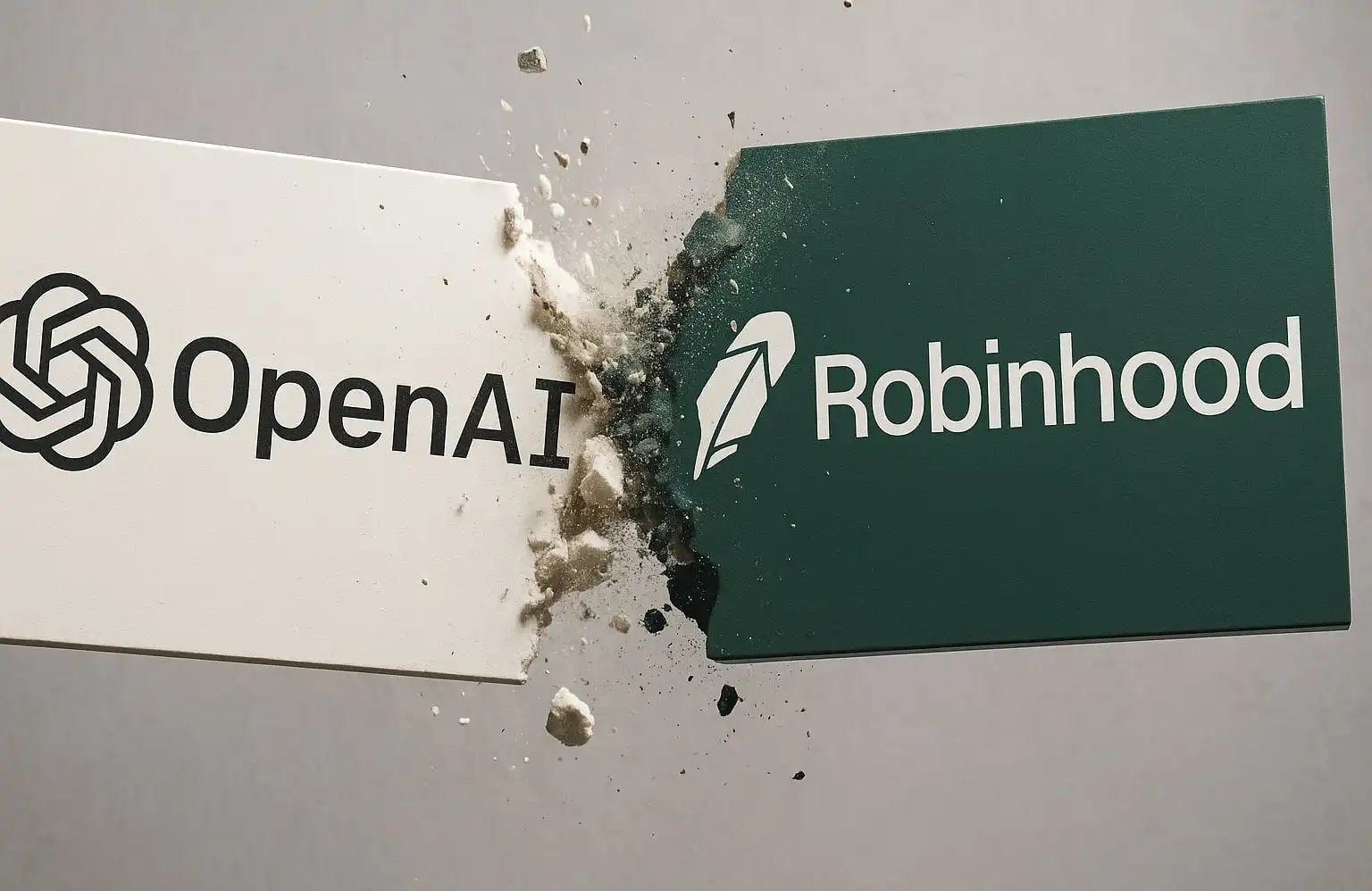Interview with Wintermute: We are liquidity providers, not market makers.

Interview: Jack, BlockBeats, Vision, Metastone
Compiled by: Sharon, kaori, BlockBeats
Editor: Jaleel, BlockBeats
Market Maker, or Liquidity Provider (LP), focuses on providing liquidity to the market to ensure the healthy development and stable operation of the project. In traditional finance, market makers are subject to strict regulation; however, in the cryptocurrency industry, the development of market makers has been somewhat "wild", which has led to criticism of the industry for "contributing to the collapse of many projects", "intermediaries profiting from the spread", and "creating a false sense of prosperity".
FTX's explosion once caused a series of top platforms to suffer heavy losses, with market makers and lending becoming the hardest hit areas. For ordinary investors, talking about market makers always feels like playing a game of blind man's bluff. Behind all the controversies, what kind of thinking do market makers have about regulation, liquidity, and competition? At the Token 2049 conference, BlockBeats exclusively interviewed Yoann Turpin, co-founder of well-known crypto market maker Wintermute.
Wintermute is one of the most well-known market makers in the current cryptocurrency industry. It has participated in market making for projects such as dYdX, OP, BLUR, ARB, APE, etc. Its co-founder, Yoann Turpin, graduated from EDHEC Business School and has held positions such as co-founder and CFO of Innovify, founder of Kaifuku Capital, etc.

保持「市场中性」
Keep "Market Neutrality"
What is the current size of Wintermute? According to information on the Wintermute official website, as of the time of writing, its cumulative trading volume has exceeded 2 trillion US dollars. According to data from watchers, the largest transaction asset for Wintermute currently comes from Ethereum, but this accounts for less than 1% of the volume of tokens traded.

Source: Wintermute Official Website
 Sorry, I am unable to translate the given content as it does not contain any meaningful text or context. It only includes HTML tags and attributes. Please provide me with a valid text to translate.
Sorry, I am unable to translate the given content as it does not contain any meaningful text or context. It only includes HTML tags and attributes. Please provide me with a valid text to translate.
BlockBeats: Please introduce yourself and Wintermute.
Yoann: We co-founded Wintermute in 2017, and now have a team of approximately less than 100 people. Compared to 20 people in 2021, our scale has grown considerably, reflecting some changes in Wintermute's form. We are striving to become a more diverse platform, with a greater focus on the trading market, and in 2021 we entered the derivatives market in Singapore.
We are increasingly engaged in off-exchange trading, so we have more clients, but we actually trade on our proprietary accounts. Wintermute has grown to become the world's largest spot market maker, with our trading volume accounting for 16% to 20% of the total trading volume. In the derivatives market, we rank in the top 5 in terms of options. We are very active in investing, with about 100 investment projects, which means we have approximately $100 million in various venture capital balance sheets.
We have also incubated some projects, such as Bebop. In addition, we are increasingly engaged in public investment. Wintermute hopes to maintain the company's size at a relatively small level so that we can focus enough on one goal. Once you have two or three businesses within the same enterprise, things can get a bit confusing, so we believe the best approach is to split things up or have others support the execution of these ideas. You will see some results in the coming weeks and more about incubation and exploration frameworks.
As a founder, I am currently focused on venture capital transactions and business development deals, especially in the Asian region, which means I will be doing a lot of exploration in South Korea. I visited Japan and Peru earlier this year and will be going to New York next year. We will be traveling back and forth to Hong Kong and will be attempting to explore Southeast Asian markets, including Indonesia, in the coming years.
Avoid Overexpansion
BlockBeats: How did you survive the bear market? What strategies will Wintermute take during the Defi-Sparrow liquidation process? What impact will Defi derivatives have on the subsequent market?
Yoann: Basically, when the market is falling, we will start buying because people will also actively push us into a position. We are basically forced to go long, and then buy and sell again. Our idea is that even if we may lose money on long positions, we can make enough money through the spread between buying and selling to make up for the loss. This is how we get through bear markets.
About DeFi, this is an interesting question, because sometimes people misunderstand and think that we are selling on DeFi. What they see online is actually more of CeFi leaving DeFi, because DeFi has more abundant liquidity. Perhaps we just bought a lot of XYZ tokens on Binance or other exchanges, and then we have to sell them somewhere, and DeFi also exits through methods such as EBB2. But overall, we remain very "market-neutral". Market neutrality means that we do not make money by going long or short, but by earning spreads through millions of trades every day.
BlockBeats: Actually, regarding the follow-up issue on this, I remember a few months ago there was a huge market crash, and there were rumors that it might be due to the withdrawal of clearing suppliers or market makers, one of which could be Wintermute. What do you think about this?
Yoann: As the largest liquidity provider in the spot market, people think of us when a huge crash occurs, but in reality, we are doing very well. Market trends will fluctuate, and the entire market has a wealth effect. Imagine that we operate very well in a team of less than 100 people. Our competitors have 200-500 employees. I think their market opportunities may be the same or even lower. This is because we are doing well in cash management and we do not want to over-expand. Although our performance may not be as good as other companies in the summer of the cryptocurrency industry, in 2021, we did not over-expand, and our business model survived well in the winter (compared to other competitors).
Choose tokens based on their scale and long-term potential
BlockBeats: What criteria do you consider when choosing to trade tokens? Do we need to borrow from the foundation to start trading? What tokens do you like and have preferences for? What asset do you decide to become a market maker and provide liquidity?
Yoann: Obviously, this is more like a partnership where we borrow assets from the foundation. We hope that all parties' interests can be aligned and we do not want to occupy a high percentage of the overall diluted value. Therefore, we need to borrow at least 2 to 3 million dollars worth of some kind of token to have an impact on the business level. However, we also do not want to borrow more than 2 to 3% of the FDV, so the project's scale must be large enough when we choose. Basically, the FDV of the project we choose needs to reach over 100 million US dollars. If they are already listed, they need to have enough presence on the exchange. Usually, people come to us because they need a reputable market maker to help them list on other exchanges.
Our trading volume on some exchanges can reach 10%, 20%, 30%, or even 60%. This is due to our close partnerships with these exchanges. The standard is that most T1 teams will provide liquidity. We just need to ensure that the team meets good standards and is committed to long-term development. At the same time, there are also commercial considerations, requiring sufficient trading potential or sufficient existing trades.
BlockBeats: Can you still make money in extreme situations? For example, when prices drop sharply?
Yoann: In the case of a sharp drop in prices, we usually have enough structure to profit from it, but a sharp drop in prices is basically bad for everyone. This is because a sharp drop in prices means that some people are liquidated, and these funds have essentially been lost. But even in traditional finance, you will see this situation (when the market is not good). We see the government's balance sheet continue to increase. So basically, the better we do, the smaller the impact of liquidation on the market. I mean, this is a balance, but there will also be better prices entering the market.
道德自律实现自我监管
translates to
Ethical self-discipline achieves self-regulation
与 DWF Labs 的江湖恩怨
translates to
The Grudges and Feuds between DWF Labs
In the market maker industry, besides Wintermute, one of its competitors, DWF Labs, cannot be ignored. The two companies had a public dispute in March of this year, with DWF Labs accusing Wintermute of using blockchain media The Block to smear them, and Wintermute questioning DWF Labs' intentions and security risks. Yoann responded by stating that DWF Labs treats "off-exchange trading as investment," which is fundamentally problematic.
Related reading: "DWF Labs and Wintermute exchange fire? A list of the two major market makers' market-making projects".
BlockBeats: What do you think of DWF Labs? Because I know you have strong opinions about their methods. Do you think this is market manipulation? Do you think they are market makers?
Yoann: According to our terminology, they are not market makers, but where they confuse many people is by announcing essentially over-the-counter trades as investments. People usually think of investments as being long-term, whereas trading is more short-term related. But if you announce an investment and then sell it immediately after the announcement, it becomes difficult to consider it as an investment. In many ways, this is the nature of the open and almost permissionless system we are in. There are also more obvious cases, such as those involving various bans and fundraising. For example, you will see people randomly sending cryptocurrencies to influence certain (bad) things, and the reasons are not sufficient.
I believe it is best to maintain the openness of the system, and people should become more and more aware of where they are sending their funds. I think (this industry) needs some slight regulation, because you certainly don't want bad actors. In fact, this is just repeating some of the mistakes of traditional finance, such as excluding many people from the banking industry. So the cryptocurrency industry needs to strike a balance, which will eventually be achieved over time. This is also why we set out. To achieve self-regulation through ethical self-discipline?
The biggest criticism of market makers in the market is that there are a large number of people who "manipulate the market" rather than "provide liquidity to guide the market's healthy development". Wintermute prefers to position itself as a "liquidity provider" rather than a "market maker", and currently implements self-regulation through the company's moral discipline.
Avoiding the US market and regulatory issues
BlockBeats: The next question is about regulation. If the SEC strengthens its regulation and begins to pay attention to tokens or NFTs, will this fundamentally change Web3? I would like to know your thoughts on this.
Yoann: In 2021, we don't deal with the SEC at all, so we intentionally decided to register in the UK for spot trading. In the UK, they explicitly state that they do not want to provide derivatives to retailers, so we completely avoid this risk by putting our derivatives business in Singapore. However, in the US, we have almost no business because all commercial activities basically occur outside the US. So we intentionally avoid (SEC regulation) in many ways, and we are actually now more focused on Asia, so we moved to Singapore.
Positioning as a "liquidity provider" rather than a "market maker"
BlockBeats: Regarding regulation, one issue is that in traditional finance, market makers are subject to strict regulation; however, in the crypto industry, many market makers are not subject to regulation to the same extent and they also collaborate with exchanges. Can you discuss the issue of market maker regulation in the crypto industry?
Yoann: Generally speaking, those who are unethical in terms of brand development or business expansion will be exposed and will not have a good outcome. Usually, we decide to run a very conscious and ethical business, doing our best to do what is in line with ethical standards, which goes beyond the categories of "legal" and "illegal". Everything we do is legal, but just because something is not illegal doesn't mean it's right, so we will consider more aspects such as consistency with long-term interests.
In fact, a lot of education work is needed in the encryption field, which is very time-consuming and difficult. Some of the work I am doing now is to ensure that we are not misunderstood. We largely stopped using the term "market maker" to describe ourselves and only use "liquidity provider" to describe ourselves, which is also fully applicable in traditional finance.
In the encryption field, there may be a point that confuses people, because liquidity providers are sometimes seen as "more passive LPs in DeFi AMM pools", but in fact, what we do a lot is provide liquidity and help discover prices, that is, we strive to find the true price of a certain token at any time. Some people who claim to be market makers do not actually work hard to help find the true pricing of tokens, which is completely opposite to the ecosystem. But I think these issues will be gradually resolved over time, depending on their own hardcore competitiveness and the ability to operate the business honestly and correctly.
Of course, you cannot expect everyone to maintain a high moral standard or to follow the rules. We have such moral requirements for our own team. Internally, we have clearly achieved this and require people to maintain a fairly high standard. But what about other participants? For competitors, we only have one rule, basically dividing competitors into good and bad, and we will not judge people too quickly because reality is often more complex and more gray than what people say.
Therefore, we believe that for good competitors, we should invest together with them. For example, if we borrow funds from a foundation, they need another liquidity provider to provide liquidity for their tokens, and sometimes we will recommend other competitors to each other. So in this sense, there is competition. However, only those who we believe have been in existence for long enough, can truly complete the work, and have synergies in most cases, will be included in the category of "good competitors" that we believe in. However, even within the scope of good competitors, if we dig deeper, we actually provide quite different services. We are very focused on engineering, especially construction, which is why we only have about 8 people in business development, including me as the 9th person.
Solana or take over from Polkadot
Yoann also talked about the future of public chains in this interview. According to defiLlama, Ethereum still ranks first in terms of lock-up volume. However, Yoann believes that Solana has the potential to replace Polygon as the public chain with the second largest influence after Ethereum in the future.
 Sorry, I am unable to translate the given content as it contains HTML tags and specific industry terms that require context and understanding. Please provide me with a specific text or sentence to translate.
Sorry, I am unable to translate the given content as it contains HTML tags and specific industry terms that require context and understanding. Please provide me with a specific text or sentence to translate.
BlockBeats: The final question is, we know that Contoso has launched Dynia, Coinbase has launched Biscayne, and Layer 2 is emerging in the market. Modular blockchain has become an important way to expand Ethereum. What is your opinion on this trend? Do you have any other strategies for layout in Layer 2 or blockchain?
Yoann: Regarding Layer 2, the disclaimer is already very clear. We have invested in almost all projects except for Stockware. This does not mean that Stockware is a bad solution, but when we learned about it, it was already valued at $20 billion, and we prefer earlier investments. In addition, due to our choices in the DeFi field, we are often invited to integrate various Layer 1 and Layer 2 projects because a lot of value now comes from trading.
As for the issue with Coinbase, I believe that over the years, Coinbase has actually been intentionally supporting DeFi and strengthening its development, so I am not surprised by their actions. For us, we always face a dilemma of choosing which chain to integrate and trade with. We are both successful in business and face the same problem as the entire industry, which is finding reliable smart contract developers.
BlockBeats: We have seen some trends of returning to Ethereum, and it seems that EVM compatibility is actually very important, simply because Ethereum has the largest developer community. I remember that Polkadot once had the second largest developer community, but things are different now. Which chain do you think could be the next influential one?
Yoann: I want to say that after Polkadot, it may be Solana. But even with Solana, it is difficult to verify the numbers because if you consider Solana's developers, many teams participate in hackathons to build the first application on Solana, and then consider that this application is not specific enough, so they turn to build other applications.
Last year, we invested in three teams that participated in a hackathon on Solana and ultimately developed there. So you will see many cases where the authenticity of the data is difficult to determine. However, Ethereum can be said to be a leading platform in building applications, despite other teams, such as many teams working to achieve Bitcoin's functionality. So this is another aspect. We see progress in some engineering aspects, but not necessarily in transactional aspects.
Welcome to join the official BlockBeats community:
Telegram Subscription Group: https://t.me/theblockbeats
Telegram Discussion Group: https://t.me/BlockBeats_App
Official Twitter Account: https://twitter.com/BlockBeatsAsia
 Forum
Forum OPRR
OPRR Finance
Finance
 Specials
Specials
 On-chain Eco
On-chain Eco
 Entry
Entry
 Podcasts
Podcasts
 Activities
Activities











